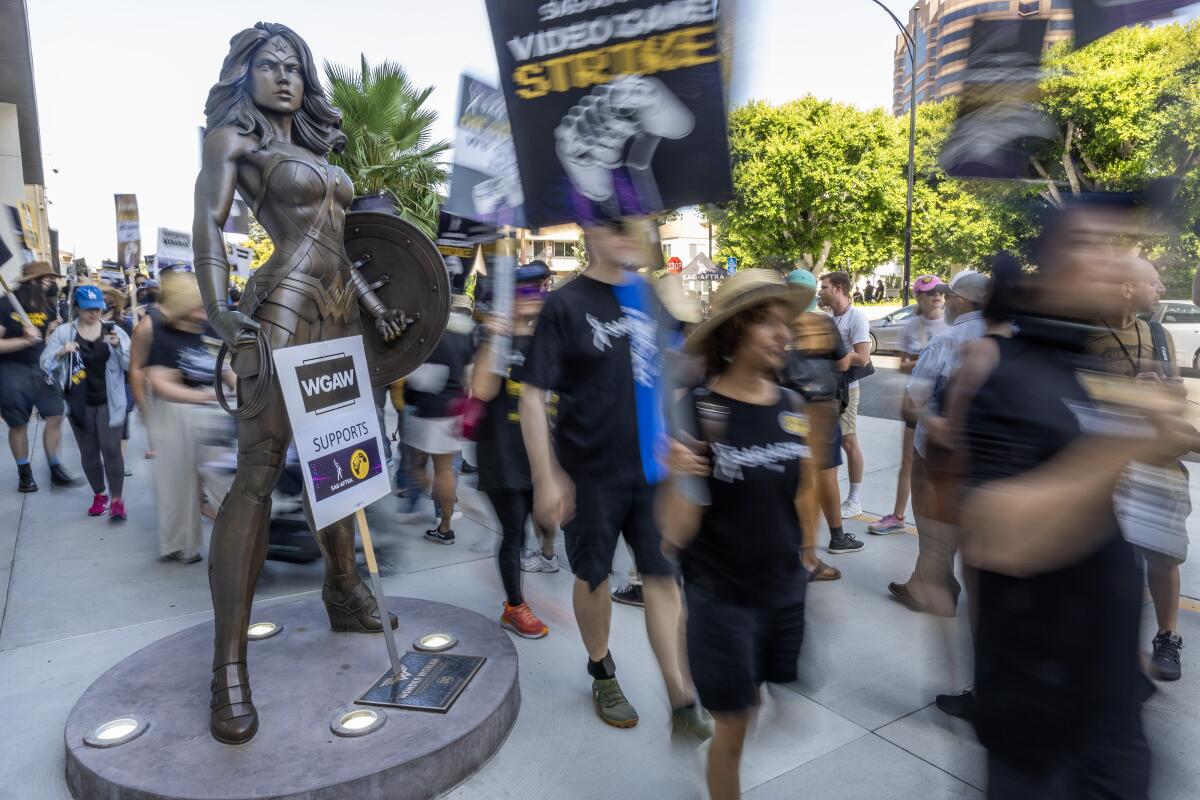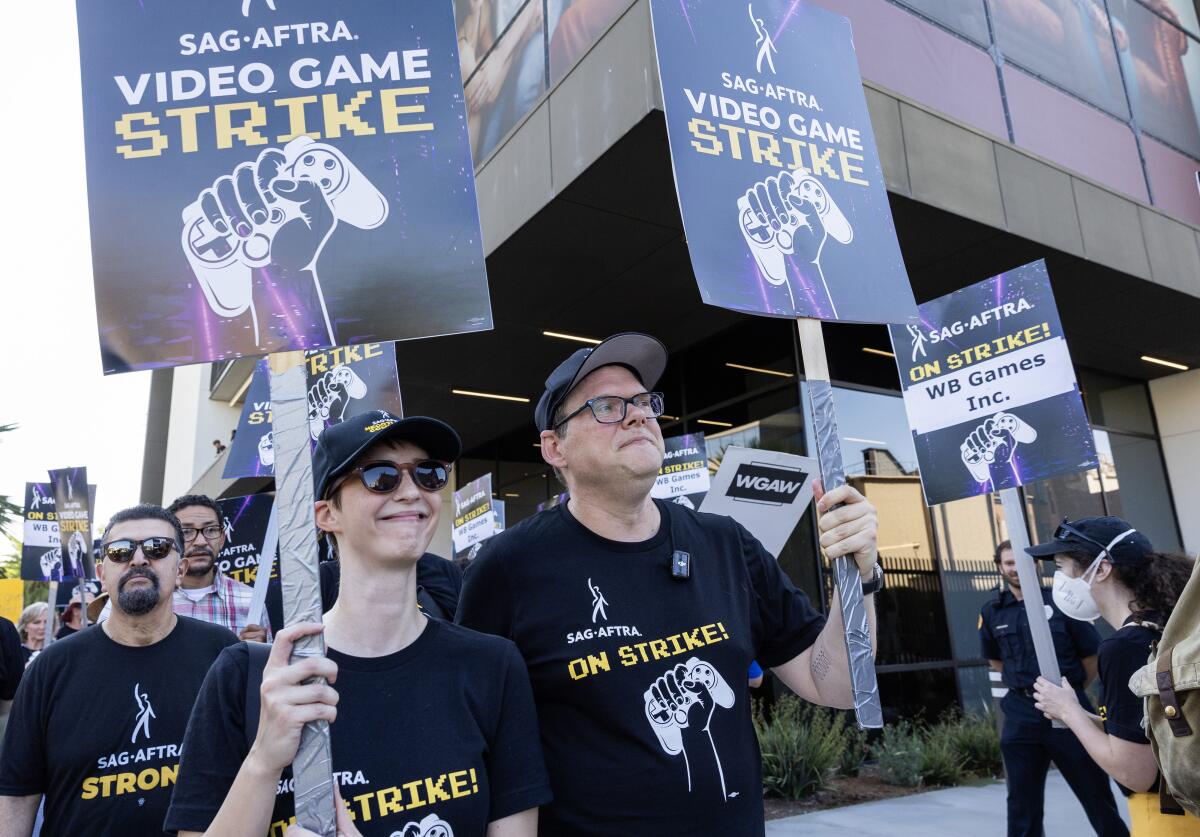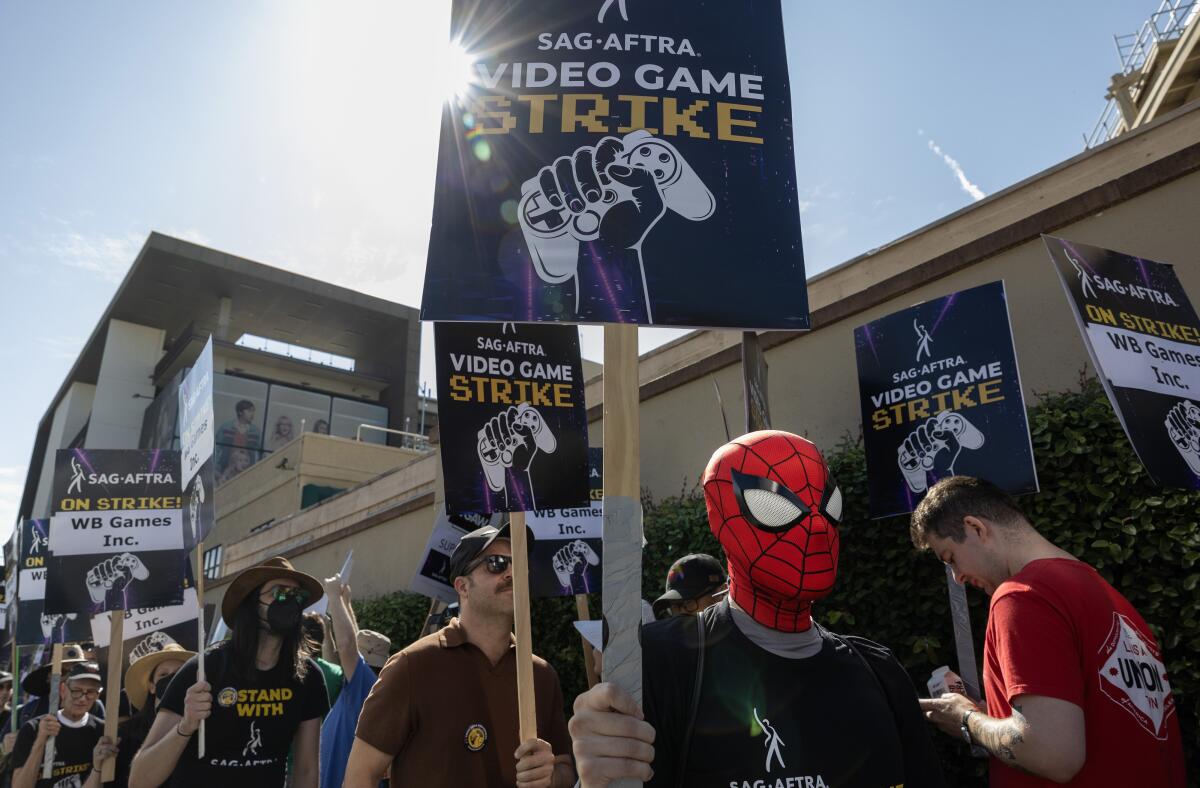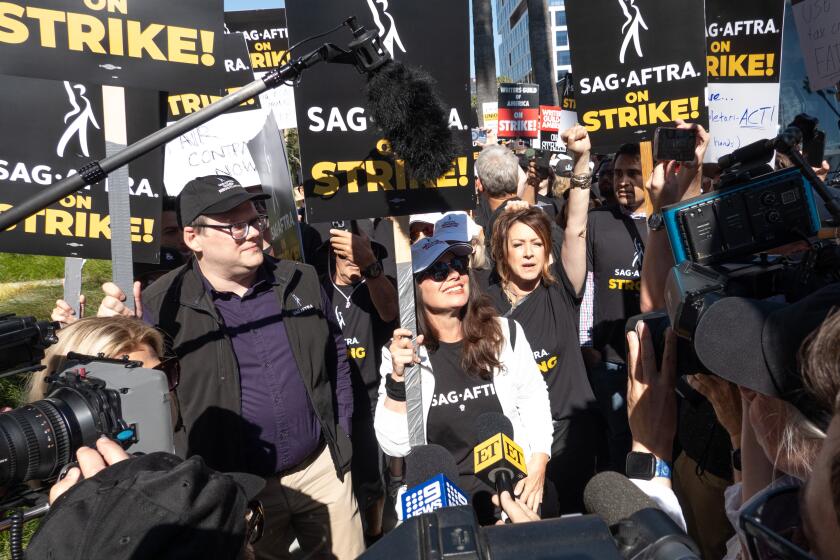Striking video game actors hit picket lines over AI: ‘The human element is irreplaceable’

- Share via
It was déjà vu in Burbank on Thursday as hundreds of striking video game actors carried picket signs and marched outside the Warner Bros. studio lot roughly a year after their film and TV colleagues did the same.
The Screen Actors Guild-American Federation of Television and Radio Artists held its first picket this week since calling a strike on behalf of some 2,600 performers doing voice acting and motion-capture work in the video game industry.
The walkout began Friday after negotiations between the union and the video game companies broke down over concerns about artificial intelligence.
The companies “come to us to ask how heroes sound and what they look like and what they do, and we’re gonna show them,” Sarah Elmaleh, chair of the union’s negotiating committee, said at the demonstration.
In a statement provided last week to The Times, video game company spokesperson Audrey Cooling said, “We are disappointed the union has chosen to walk away when we are so close to a deal, and we remain prepared to resume negotiations.”
Video game actors are on strike after performers union SAG-AFTRA and the video game companies couldn’t agree on AI terms.
SAG-AFTRA has been bargaining with the video game companies for a new agreement covering interactive media since the contract expired in 2022. Game actors have demanded AI regulations, wage increases to keep up with inflation, more rest time and medical attention for hazardous jobs.
Nearly two years later, the remaining issue at the heart of the strike is AI.
The performers are seeking a deal that will require video game producers to notify them when planning to replicate their voices, movements or likenesses with AI, inform them about how their work will be used, obtain their consent before moving forward and compensate them accordingly.
“As long as AI is used as a tool and not a replacement, that’s fine,” said Chris Jai Alex, a striking video game actor known for portraying Tusk in “Killer Instinct” and Strife in “Darksiders Genesis.”
“I’m all about being efficient, but ... the human element is irreplaceable.”

LeQuan Bennett, a striking video game actor known for voicing Captain Trent in “Return to Monkey Island,” said he believes that a performer’s likeness, movements and voice should be regarded as their intellectual property in business negotiations with video game producers.
“Being technically minded, I understand that there’s no stopping AI,” Bennett added. “We are fighting to put guardrails that protect our rights.”
Video game actors argue that they are especially vulnerable to AI because of the invisible nature of voice acting and motion-capture work. They worry that if a company uses AI to replicate their voices or movements without permission or compensation, they will have a hard time proving it.
“Studios and [developers are] trying to make the argument that if it’s recognizable as you and your natural speaking voice, then we can talk about protections,” said Alejandra Reynoso, an actor known for voicing characters in “Dota 2” and “Stranger of Paradise: Final Fantasy Origin.”
“But I think we all know that you love what video game performers and actors do because they can become so many characters.”
SAG-AFTRA has called a strike against the video game companies about a year after performers voted to authorize a walkout.
A major concern for actor Seth Allyn Austin — who has worked on “The Last of Us Part II,” “Star Wars Jedi: Fallen Order” and Insomniac’s “Spider-Man” series — is being sufficiently informed about how his performances will be used. He and other performers want to make sure game developers’ plans align with their values before giving them permission to replicate performers’ work.
“This is one of the first strikes where I’ve seen movements, stunts, voice and actors all really come together as one,” Austin said. “We’re all taking up different burdens on the same fight.”

AI was also a key sticking point during the film and TV actors’ strike, which ended with contract terms requiring studios to obtain performers’ consent and compensate them when replicating their work with AI. Some actors were critical of that agreement, arguing that the AI protections weren’t strong enough.
“We’ve been continuing to evolve our AI provisions since the ... strike last year,” said Duncan Crabtree-Ireland, SAG-AFTRA national executive director and chief negotiator. “There will always be SAG-AFTRA members who want there to be no AI. I get it. I understand it. I even sympathize with it. That’s not a reality that we can create.”
More to Read
Inside the business of entertainment
The Wide Shot brings you news, analysis and insights on everything from streaming wars to production — and what it all means for the future.
You may occasionally receive promotional content from the Los Angeles Times.













